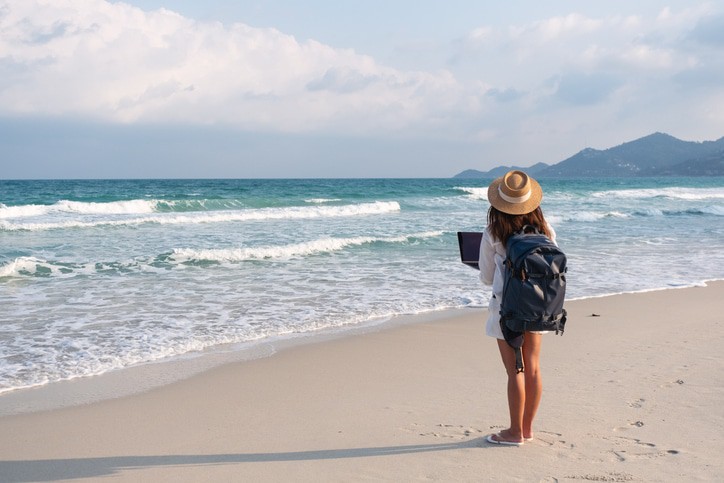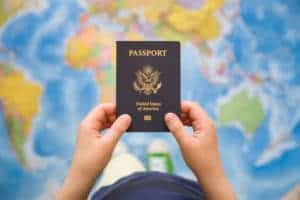Being able to move to another country is truly a dream come true. With the world rapidly developing and growing, sometimes one finds an opportunity to settle somewhere other than their own country for the greater good. Moving abroad can offer numerous benefits, such as better health, education, financial stability, and a new and international perspective.
When you move abroad, you can develop new friendships and relationships and learn about different cultures and traditions. As charming as it may sound, moving abroad and starting a new life there can be a daunting experience for some people. It is an agreeable fact that it is not a simple procedure. But, with proper guidance and knowledge, your entire experience of moving abroad can become an enjoyable learning process.
Tips and tricks to learn before planning move abroad
There are a few tips and tricks that you need to learn before planning to move abroad so your experience can be as smooth as possible.
1. Picking a Global Nomad Destination
The first thing while you are planning to move abroad is deciding where you want to go. While determining the country you want to move to, you need to keep the following factors in mind: the cost of living, how people live in the particular region, the languages spoken there, political stability, housing stability, climate, access to healthcare and education, and so on. All of these factors will strongly influence your decision to move to another country.
2. Visa Options
The second thing you should be asking yourself before planning your move is to search and review your visa options. Attaining a visa and moving to another country is not as easy as it sounds.
Visas play a crucial role in giving you legal status in any country. This way, you can access the country’s resources legally. The resources can be in the form of education, healthcare, job, residence, etc.
Every country has its own immigration policies, and one should comply with them while planning to move and settle there. After you have reviewed the immigration policies, you can decide on the type of visa you wish to attain. It can be a work visa that will help you find jobs overseas or a student visa that will help you complete a degree overseas if approved, followed by temporary residence that can turn into permanent residency based on a few factors. There are several other visa options that vary from country to country. Note that many countries will only approve your visa if you are able to secure a global health insurance policy that will cover you and your dependents in the host country.
3. Money Matters
Moving to another country, let alone changing your cities within your current country, is such a substantial financial investment. You have to save up for the move, pay rent in advance, ticketing, and other documents depending on your intended country.
Sometimes when you arrive in another country, you have to wait for a while before finding a place to live. In this scenario, you need to have savings to pay for the Airbnb you are renting or any other accommodation where you are living temporarily. You need to make financial plans for the things and space you will be renting and purchasing. Flights to some countries can be expensive, so you need to bear the cost in mind before you decide to move.
Make sure to keep savings to survive for at least a year. You can always make a rough estimate of how much you have to save by searching the living costs of a specific country on google, or if you have any friends and acquaintances living in that country, you can always ask them.
4. Job Opportunities
Searching for job opportunities in a particular country will determine if moving there will be a viable decision or not. You need to make sure that there are jobs available that are relevant to your field. It is preferred not to restrict your move to a specific country.
Another factor to consider while looking for jobs is to ensure that your degree is accepted there. If you move to another country and find out that the degree you have done is not recognized there, this will open a whole new set of issues for you.
The easiest way to look for a job is via LinkedIn or by joining various Facebook groups for job opportunities. Networking also plays a crucial role and can land you a job quickly.
5. Education
When you are planning to move to another country with your family, it is essential to consider local education as you will eventually have to enroll your children after arriving. It is important to research how the education system works in your desired country because it varies globally.
Make your children’s aggregate using their grades and scores and enlist which documents are necessary. The information regarding this is usually present on the country’s government website.
6. Health Insurance
You need to be vigilant about how the healthcare system works in the country you are planning to settle in. Depending on your visa, every country offers different health coverage. For instance, Canada has a universal healthcare system, while Australia provides a mix of private and public insurance. Therefore, check the healthcare requirements and plan accordingly.
If the country you are moving to as a global nomad has basic healthcare services or poor or limited health insurance choices, you should consider a global nomad health insurance policy. Most international health plans will cover you globally, including or excluding the USA. Most domestic plans will only cover you in your destination county, which is not ideal for most expats and international citizens.
If you are moving on a student or work visa, you need to buy an international health insurance plan.
7. The Belongings
Before moving abroad, you must decide what to do with your belongings back home because taking almost everything with you is impossible. The most beneficial option would be to sell the possessions which you do not need so you can add more money to your financial savings. Another good option would be to donate the things to different organizations. The pieces which hold a sentimental value to you can always be lent to a friend or family member.
8. Pack Smartly
Finally, when you are ready to move, it is crucial to pack smartly and not excessively. Pack all the basic necessities first and then opt for the things which you think may benefit you in your move.
Moving abroad is a huge decision for anyone; the more knowledge you have and the more prepared you are, the easier transition will be for you, and the entire experience can become memorable and fun.





